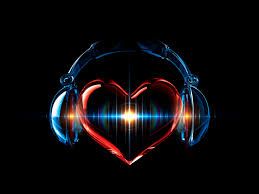Music Therapy
Aug 12, 2019 • 122 views
Life would have been very Drastic,
If it didn’t have something to offer so fantastic,
It has the power to make you happy and make you CRY,
Yes I am talking about MUSIC why don’t you give it a Try?
Music has been an integral part of every possible culture in the world for uncountable years.Music is a sole art form which has the power of making your body feel different emotions.This power of music to make you feel emotions is used by doctors to help you improve the quality of life which is termed as MUSIC THERAPY
TYPES OF MUSIC THERAPY
There are two fundamental types of music therapy: receptive music therapy and active music therapy (also known as expressive music therapy). Active music therapy engages clients or patients in the act of making vocal or instrumental music, whereas receptive music therapy guides patients or clients in listening to live or recorded music.
Receptive
Receptive music therapy involves listening to recorded or live music selected by a therapist.It can improve mood, decrease stress, decrease pain, enhance relaxation, and decrease anxiety. Although it doesn't affect disease, it can help with coping skills.
Active
In active music therapy, patients engage in some form of music-making, either by singing or by playing instruments. Researchers at Baylor, Scott, and White Universities are studying the effect of harmonica playing on patients with COPD in order to determine if it helps improve lung function.Another example of active music therapy takes place in a nursing home in Japan: therapists teach the elderly how to play easy-to-use instruments so they can overcome physical difficulties.
HISTORY
The idea of music therapy was first introduced after WORLD WAR I and WORLD WAR II when musicians of all types ,went to veterans suffering from both physical and emotionals traumas.The pateints notable response to music led the doctors into hiring of musicians by the hospital to treat their pateints. The first music therapy degree program in the world, founded at Michigan State University in 1944, celebrated its 50th anniversary in 1994. The American Music Therapy Association was founded in 1998 as a union of the National Association for Music Therapy and the American Association for Music therapy.
What do music therapists do?
Music therapists assess emotional well-being, physical health, social functioning, communication abilities, and cognitive skills through musical responses; design music sessions for individuals and groups based on client needs using music improvisation, receptive music listening, song writing, lyric discussion, music and imagery, music performance, and learning through music; participate in interdisciplinary treatment planning, ongoing evaluation, and follow up.
Who can benefit from music therapy?
Children, adolescents, adults, and the elderly with mental health needs, developmental and learning disabilities, Alzheimer's disease and other aging related conditions, substance abuse problems, brain injuries, physical disabilities, and acute and chronic pain, including mothers in labor.
Where do music therapists work?
Music therapists work in psychiatric hospitals, rehabilitative facilities, medical hospitals, outpatient clinics, day care treatment centers, agencies serving persons with developmental disabilities, community mental health centers, drug and alcohol programs, senior centers, nursing homes, hospice programs, correctional facilities, halfway houses, schools, and private practice.
What are some misconceptions about music therapy?
That the client or patient has to have some particular music ability to benefit from music therapy -- they do not. That there is one particular style of music that is more therapeutic than all the rest -- this is not the case. All styles of music can be useful in effecting change in a client or patient's life. The individual's preferences, circumstances and need for treatment, and the client or patient's goals help to determine the types of music a music therapist may use.
How can music therapy techniques be applied by healthy individuals?
Healthy individuals can use music for stress reduction via active music making, such as drumming, as well as passive listening for relaxation. Music is often a vital support for physical exercise. Music therapy assisted labor and delivery may also be included in this category since pregnancy is regarded as a normal part of women's life cycles.

Hence music therapy is something which can people from all walks of life and is something which can be done on daily basis without the actual need of specially removing time from it. This can be done while doing daily chores of day or during a commute and even during your daily drive to work.
“WHERE WORDS FAIL,MUSIC SPEAKS.”
-Hans Christian Andersen
